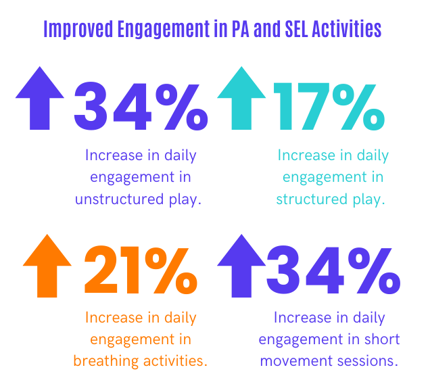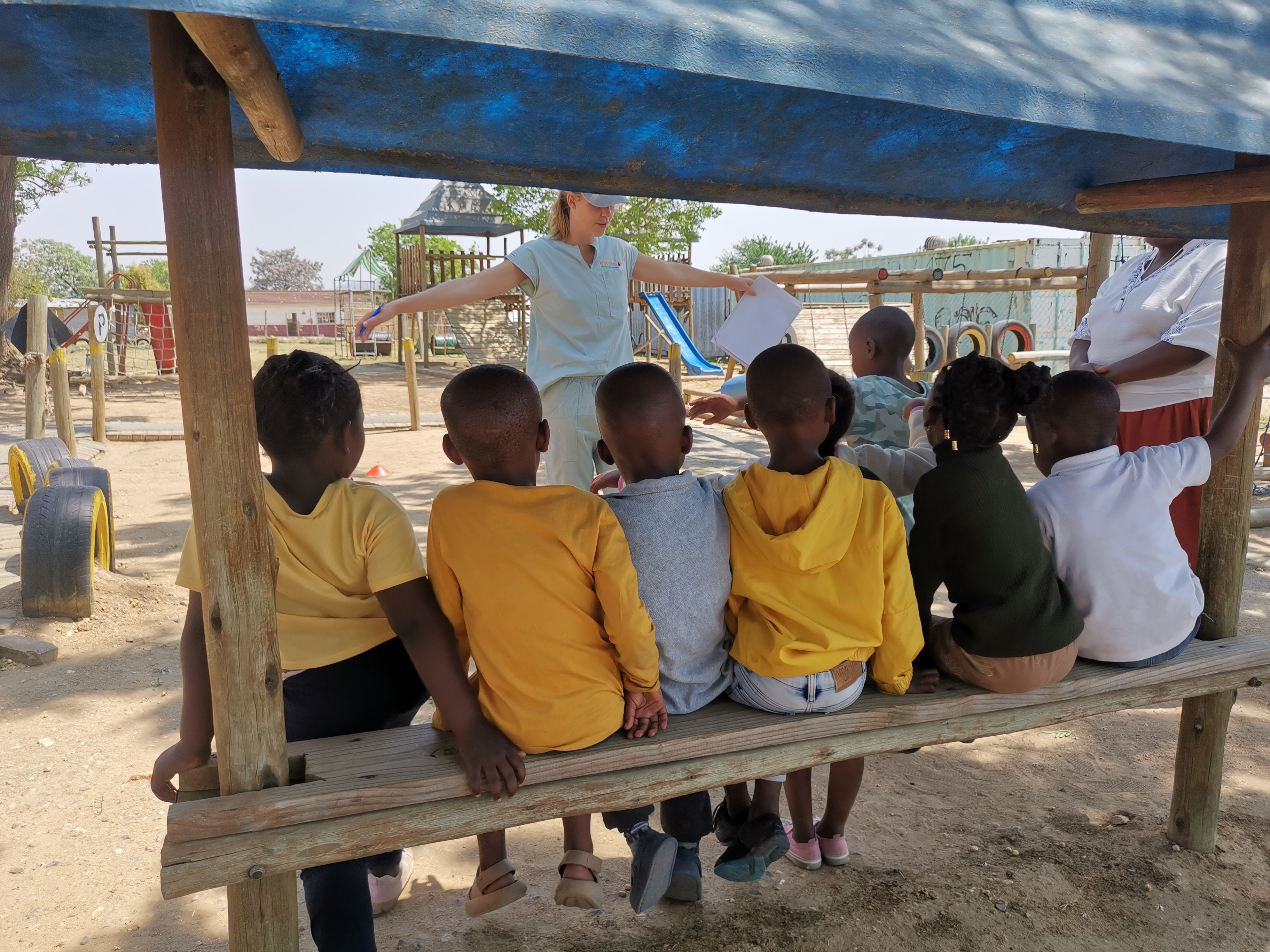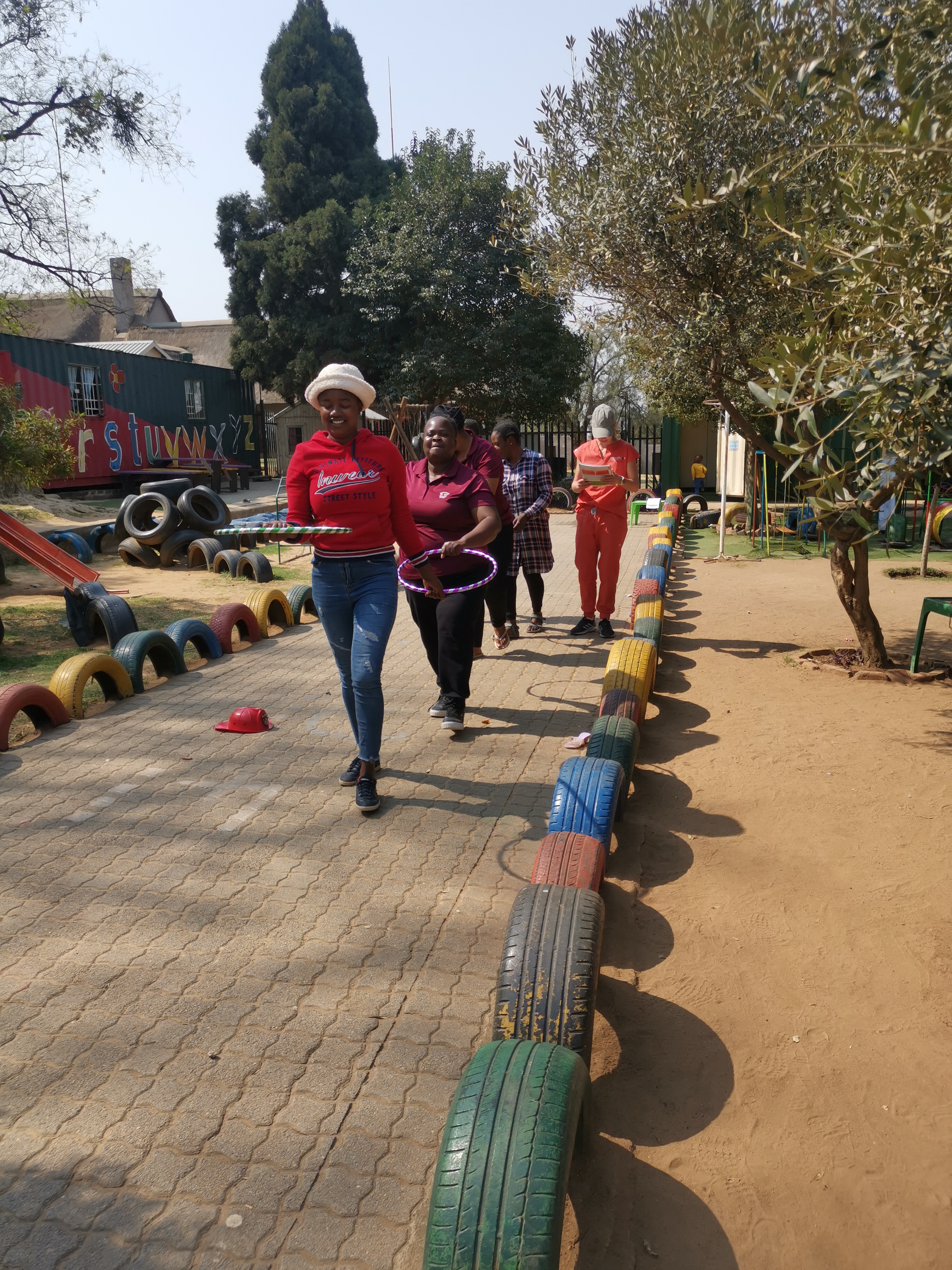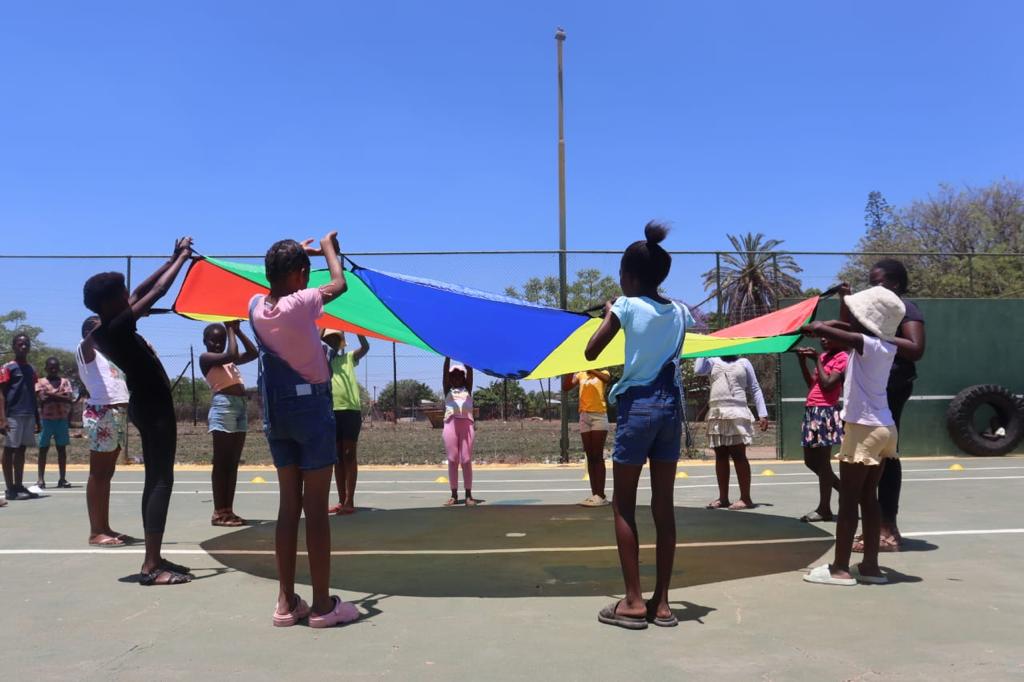Insights from the Kids Collab Pilot Project
As we bring our pilot project with the Gauteng Department of Education (GDE) to a close, we’re excited to share the reflections and insights that have emerged from this journey. Our bold vision was to evolve the Kids Collab Physical Development and Wellbeing Programme into an Open Educational Resource (OER) and test its impact in marginalised communities where resources are often scarce. With the pilot now complete, we're celebrating our successes, addressing the challenges we faced, and setting our sights on the future.
In South Africa, children in underserved communities frequently miss out on essential opportunities for early childhood development (ECD), particularly in physical development and well-being. Recognising this critical gap, Kids Collab embarked on a pilot project to bridge this divide. Through hands-on training, OER handbooks, and tailored equipment packs, we aimed to empower practitioners to integrate physical activity (PA) and social-emotional learning (SEL) strategies into their daily routines, enhancing children's fundamental motor skills and socio-emotional competencies.
Key achievements
Reflecting on the pilot's outcomes, we have seen noteworthy achievements. Practitioners reported a significant increase in their confidence and effectiveness in delivering fundamental movement skills (FMS) and SEL activities. This boost in confidence translated into observable improvements in children's gross motor skills and overall development and behaviour.

What truly took us by surprise was the extent to which practitioners observed the Kids Collab programme positively influencing various areas of children's development. They noted that activities promoting crossing the midline were beneficial for academic skills, such as reading and writing, revealing an unexpected link between physical activities and cognitive growth. The programme also sparked creativity and imagination in children, increased their engagement and communication, and enhanced social skills. Practitioners highlighted that the focus on play rather than passive learning made the programme more engaging and effective, resulting in improvements in behaviour, attention, and the ability to follow instructions. Additionally, structured games taught children to follow rules and take turns, which contributed to better classroom dynamics and social interactions.
Our success was underpinned by several key factors. The decision to develop the Kids Collab School Programme as an OER has proven to be a strategic advantage, providing a flexible and scalable resource that has reached various organisations and communities beyond the scope of this pilot project. The support from the GDE was invaluable, facilitating programme implementation in some of Gauteng’s most resource-constrained ECD centres and fostering greater engagement from practitioners. The dynamic, play-based training we offered resonated with practitioners, enabling them to effectively embed the programme into their practices.
One of the most crucial aspects of the pilot programme was the training provided to the practitioners. With ECD having moved from the Department of Social Development to the Department of Basic Education, there is now a significant focus on upskilling practitioners to provide comprehensive early years education. This training expanded practitioners' knowledge in areas not traditionally emphasised within existing structures, proving crucial for their effectiveness in delivering the programme.
Challenges faced
Despite our progress, the pilot project faced several obstacles that underscored the need for ongoing adjustments. South Africa's diverse landscape naturally means that many practitioners do not have English as a first language, so to ensure full use of the programme, we must consider language adaptations in future iterations. Additionally, working in resource-constrained environments often meant limited space and materials. These challenges highlighted the necessity for our programme to be adaptable to the unique contexts of the communities we serve.
Knowledge gaps, particularly in the area of neurodiversity, emerged as a crucial issue during the pilot phase. Through our in-person engagements with practitioners, it became evident that there was a significant lack of understanding about how to identify and support neurodiverse children. Many practitioners struggled with recognising the signs of neurodiversity and lacked the strategies needed to engage these children in a way that ensured their inclusion and participation in the programme.
This gap in knowledge is particularly concerning given our commitment to inclusivity. Our programme's success hinges on its ability to cater to all children, including those with diverse cognitive and sensory needs. Government guidelines have underscored the importance of inclusivity from the outset, aligning with our mission to create an equitable learning environment. Therefore, addressing this knowledge gap is not only a matter of enhancing our programme’s effectiveness but also fulfilling a key requirement established at the beginning of our collaboration.

An incredible learning curve from this pilot was navigating the complexities of working with government processes. Collaborating with the GDE offered us profound insights into the bureaucratic and procedural aspects that govern large-scale educational initiatives. We encountered a variety of challenges, from understanding the nuanced requirements for programme approval to aligning our objectives with government priorities and compliance standards.
Lessons learned
One significant lesson was the importance of patience and persistence. Government processes can be time-consuming and require careful coordination between various departments and stakeholders. We learned that timelines can be longer than anticipated, and flexibility is essential when adapting to procedural delays. This experience taught us the value of clear communication and setting realistic expectations with all parties involved.
Moreover, working with government entities highlighted the need for comprehensive planning and documentation. Detailed proposals, impact assessments, and progress reports became crucial tools for keeping the project aligned with regulatory requirements for both project funders and government and for securing ongoing support. We also realised that building strong relationships with government officials and understanding their perspectives can greatly enhance collaboration and project success.
Where to from here: Next steps and strategic vision
As we conclude the pilot project with the GDE, we are enthusiastic about building on the insights and successes we've achieved. Our next steps will focus on refining the programme, scaling its impact, and ensuring its long-term sustainability.
Firstly, we will prioritise refining the Kids Collab Physical Development and Wellbeing Programme by developing additional resources and training materials. We plan to address specific areas identified during the pilot, such as enhancing our focus on certain FMS, like star jumping and bouncing. These skills are crucial for children’s gross motor development and require targeted activities to support their improvement. Alongside this, we will produce follow-along videos to provide visual and practical guidance, making it easier for practitioners to implement and for children to engage with the activities. Our training modules will also be expanded to include targeted content on neurodiversity, equipping practitioners with the knowledge to effectively engage with neurodiverse children and ensure an inclusive learning environment.

In terms of scaling and sustainability, our partnership with the GDE has been instrumental in piloting the programme in resource-constrained communities. Moving forward, we are committed to embedding the Kids Collab Programme within ECD curriculum frameworks to ensure its integration into standard educational practices. This will involve working closely with educational authorities to secure ongoing support and funding. To facilitate the programme’s expansion, we also plan to adopt a district-level approach, initially focusing on Gauteng, a province where we have already built strong relationships. This strategy will allow us to provide concentrated training, support, and monitoring, ensuring consistent programme delivery and quality across participating ECD centres.
A key component of our scaling strategy will be implementing a Train-the-Trainer (ToT) model. This approach will involve training regional trainers from implementing partners, who will then disseminate the programme content to a broader network of practitioners. This model will ensure that the programme is delivered consistently and can be adapted to meet local needs. To support this, we will establish centralised training sessions in each district, providing streamlined training logistics and ongoing professional development.
Finally, ensuring the sustainable provision of resources is critical for the programme’s success, especially when working with resource-constrained environments. We will seek collaborations with governmental bodies and other partners to secure funding for equipment packs and print resources, ensuring that these essential materials are available and sustainable.
By focusing on these areas and applying the lessons learned from the pilot, we are confident that the Kids Collab Physical Development and Wellbeing Programme will continue to make a meaningful impact. We are excited about the future and look forward to sharing more updates as we embark on this next chapter of growth and development.
Read the report on the Kids Collab Pilot here.
Access the resources from this project here.
See more posts from Kids Collab here.

